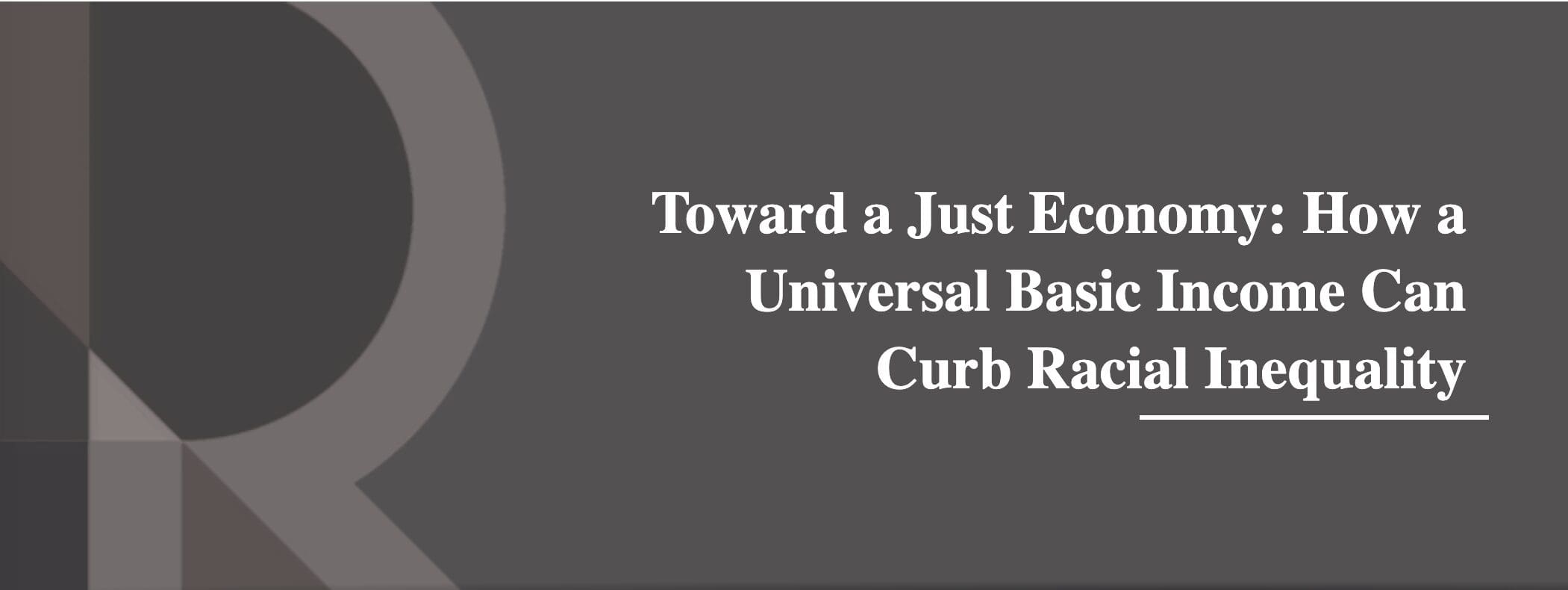FOR IMMEDIATE RELEASE: June 19, 2019
CONTACT: Ariela Weinberger, aweinberger@rooseveltinstitute.org
Toward a Just Economy: How a Universal Basic Income Can Curb Racial Inequality Coinciding with Juneteenth and the presidential debates, a new issue brief explores the role of guaranteed income in combating racial wealth inequalities
NEW YORK, NY – A new issue brief released today argues that implementing universal basic income (UBI), or “guaranteed income,” is a critical step in tackling the large and growing racial wealth gap in the United States. Written for the Roosevelt Institute by Roosevelt Institute of theRoosevelt Institute, “Exploring Guaranteed Income Through a Racial and Gender Justice Lens” makes the case that achieving a more equitable society will require implementing a range of policies capable of redefining the American economy.
The brief is being released on Juneteenth, which marks the day that Union soldiers announced the end of the Civil War, about two and a half years after the signing of the Emancipation Proclamation. The brief highlights how the legacy of slavery is still baked into the US economy and society today.
In 2016, the typical white household held $171,000 in wealth—10 times that of the typical Black household and about 8 times that of Latinx households. Breaking the data down further by race/ethnicity, the brief finds that single Black and Latinx women have a median wealth of $200 and $100 respectively, compared to $28,900 for single white men.
“Our nation has a long and troubled history of rules that have driven today’s racial wealth disparities. If we want to see real change, we have to come to terms with the reality that anti-Black sentiment, xenophobia, and sexism have led to unconscionable economic stratification,” said Bhattacharya. “While a tiered UBI program gets us on a pathway toward racial wealth equity, such a policy must be paired with a process of truth and reconciliation and an honest discussion of the impact of race in this country.”
The brief argues that a multi-pronged approach is necessary to address racial wealth gaps. Such an approach must include:
- Shifting the narratives that question people of color’s deservedness to receive public assistance;
- Recognizing and eliminating the ways in which state and local governments continue to strip and extract wealth from communities of color through our criminal justice system; and
- Establishing a reconciliation process that includes mental and physical health programs, anti-bias curriculum, and restorative justice programs.
To learn how this research can redefine racial wealth divides and potentially impact the 2020 presidential debates, read Roosevelt Institute Fellow Rakeen Mabud and Director of Communications Kendra Bozarth’s Why This Matters.
[1] See brief for citations.
About the Roosevelt Institute
The Roosevelt Institute, a New York-based think tank, promotes bold policy reforms that would redefine the American economy and our democracy. With a focus on curbing corporate power and reclaiming public power, Roosevelt is helping people understand that the economy is shaped by choices—via institutions and the rules that structure markets—while also exploring the economics of race and gender and the changing 21st-century economy. Roosevelt is armed with a transformative vision for the future, working to move the country toward a new economic and political system: one built by many for the good of all.
To keep up to date with the Roosevelt Institute, please visit us on Twitter or follow our work at #RewriteTheRules.





















